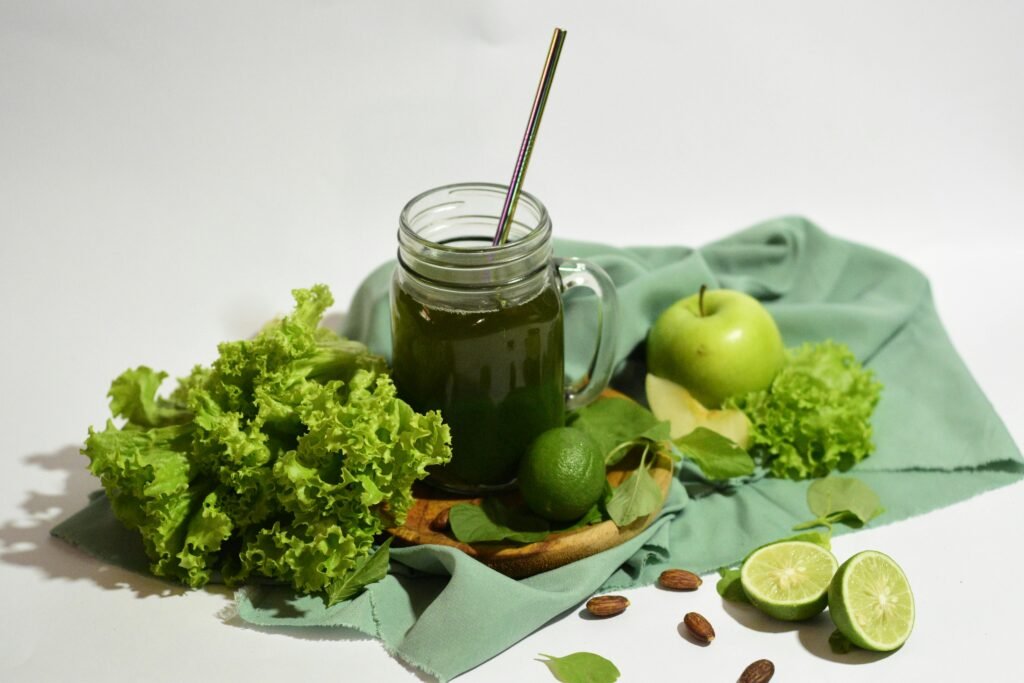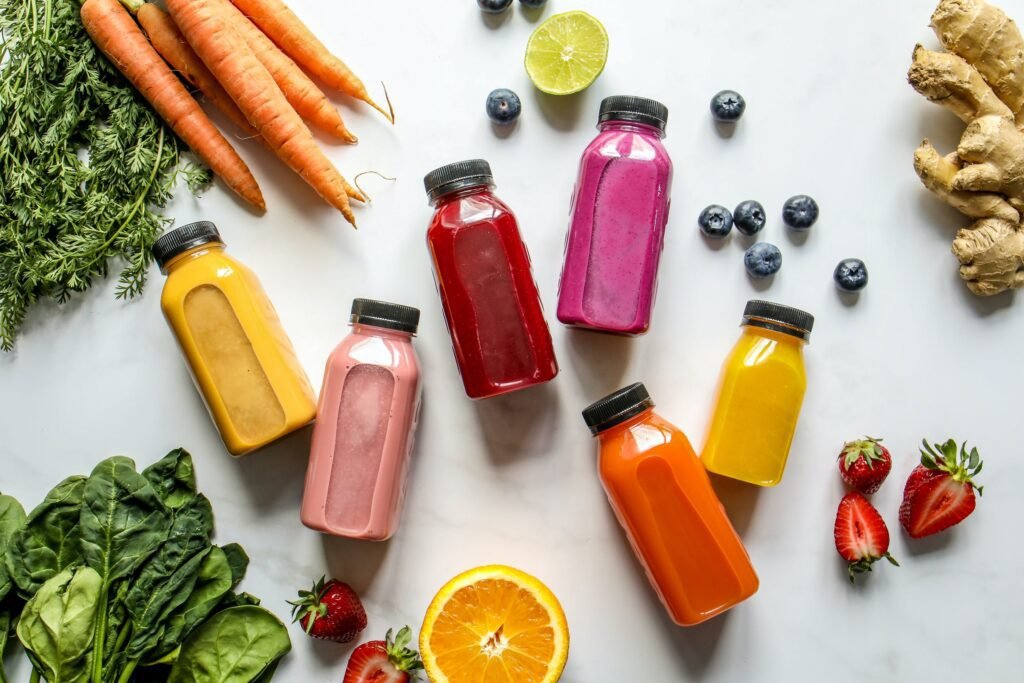Power Up Your Recovery with the Natural Immune-Boosting Juices
When under the weather, our typical instinct reaches for a comforting glass of juice.
While any liquid can provide temporary relief, choosing the right juice can significantly impact your recovery.
In this aricle we will explore the science behind strategic juice selection during illness, focusing on factual information and practical guidance.
Forget sugary concoctions – the key lies in understanding your body’s specific needs. Illness often leads to dehydration and nutrient deficiencies.
Choosing juices based on their hydration potential, vitamin and mineral content, and potential symptom-alleviating properties can offer tangible benefits.
Think of your body as a complex system undergoing repair. Water remains the ultimate hydrator, but specific juices can provide targeted support.
For instance, citrus juices offer a vitamin C boost, while ginger possesses anti-inflammatory properties. Today we will delve into the specific benefits of various juices for common ailments, from the common cold to digestive issues.
We’ll also address common misconceptions about hydration and juice selection, ensuring you have the facts to make informed choices.
Additionally, we’ll explore alternative sources of hydration and nutrients, expanding your options beyond the juice aisle.
Ultimately, this guide aims to empower you to navigate the world of juices during illness, enabling you to make choices that optimize your recovery journey.
It’s not about magic potions, but about understanding how specific nutrients and properties can support your body’s natural healing processes.

Identifying the Best Juices: Your Battle Plan for Recovery
When illness strikes, choosing the right juice becomes a strategic maneuver in your fight for recovery. It’s not just about quenching thirst; it’s about replenishing fluids, delivering vital nutrients, and even actively combating symptoms.
But with countless options lining the shelves, how do you identify the best allies for your specific needs?
Understanding Your Priorities
Several key factors come into play when selecting the right juice during illness:
- Hydration: Dehydration often accompanies illness, making water your primary weapon. However, juices can offer additional hydration alongside their nutrient content.
- Nutrients: Different ailments call for different nutrients. Vitamin C supports your immune system, while potassium aids fluid balance. Choose juices rich in relevant nutrients based on your symptoms.
- Sugar Content: Avoid sugary drinks, as they can worsen inflammation and hinder recovery. Opt for low-sugar juices or dilute concentrated options with water.
- Symptom Relief: Specific juices offer targeted benefits. For example, ginger soothes sore throats, while some fruits boast anti-inflammatory properties.
Decoding the Juice Labels
Reading labels is crucial for making informed choices. Here’s what to look for:
- Ingredients: Opt for juices with whole fruits and vegetables as the primary ingredients. Avoid added sugars, artificial flavors, and preservatives.
- Sugar Content: Pay close attention to sugar levels per serving. Choose low-sugar options or dilute concentrated juices with water.
- Processing: Freshly squeezed or cold-pressed juices offer the most nutrients. However, pasteurized options can be a convenient alternative.
Remember, Knowledge is Power
By understanding your needs and prioritizing the factors mentioned above, you can transform your juice from a simple drink to a potent weapon in your recovery arsenal. Let’s explore specific juice recommendations for common ailments in the next section.

Hydration Beyond Juices: Expanding Your Rehydration Options
While juices offer valuable nutrients during illness, remember: water remains the essential foundation for proper hydration.
Aim for eight glasses daily, regardless of your health status. However, other options can play crucial roles in supporting your recovery:
- Coconut Water: This natural source of electrolytes, including potassium, sodium, and magnesium, can be particularly beneficial for managing dehydration or digestive issues. Consider it a hydrating supplement that replenishes lost minerals and fluids efficiently, but not a complete replacement for water.
- Oral Rehydration Solutions (ORS): In severe cases involving significant fluid loss and electrolyte imbalance, consult your doctor about ORS. These meticulously formulated solutions provide precise ratios of essential minerals and electrolytes to restore your body’s balance. Remember, their use should be guided by medical advice for optimal effectiveness.
- Herbal Teas: Warm and soothing, herbal teas like ginger or chamomile offer both hydration and targeted symptom relief. Ginger tea, with its anti-inflammatory properties, can alleviate nausea and soothe a sore throat, while chamomile promotes relaxation and aids in sleep, crucial for recovery. Think of them as additional sources of hydration with specific benefits for symptom management.
The key to optimal recovery lies in diversifying your fluid intake.
Don’t rely solely on juices for hydration. By incorporating water, coconut water, ORS (when needed), and herbal teas, you create a comprehensive hydration strategy, each element playing a vital role in your fight against illness.

Tailoring Your Juice Choices for Specific Ailments
Moving beyond general hydration, let’s look at specific juice recommendations for common ailments.
The key is to choose juices that offer targeted support for your unique symptoms, not just a generic refreshing drink.
Colds and Flu:
- Citrus Fruits: Oranges, grapefruits, and lemons are champions in vitamin C content, a crucial nutrient for immune system function and inflammation reduction. Their high vitamin C concentration helps your body fight off infection and potentially shorten the duration of your illness.
- Beetroot: This earthy warrior packs a double punch of vitamin C and betalains, potent antioxidants with anti-inflammatory and fatigue-fighting properties. Beetroot juice can help reduce fever and combat the feeling of tiredness often associated with colds and flu.
- Ginger: This versatile root vegetable boasts anti-inflammatory properties that can soothe a sore throat and ease congestion. Consider combining ginger with apple and lemon for a warming and comforting beverage that helps alleviate scratchy irritations.
Sore Throats:
- Carrot: Rich in beta-carotene, a precursor to vitamin A, carrot juice offers soothing properties that can help with throat irritation and promote healing. Enjoying it warm can provide additional comfort.
- Cucumber: This cool and hydrating juice with a hint of cucumber offers a refreshing respite from throat soreness. Its high water content helps keep you hydrated, while the cucumber provides a slightly numbing effect that can alleviate discomfort.
Upset Stomachs:
- Apple: Gentle and naturally sweet, apple juice is a good choice for a sensitive stomach as it provides hydration without causing further irritation. Its mild sweetness can also help settle nausea.
- Melon: Watermelon and cantaloupe offer a soothing blend of hydration and electrolytes, particularly potassium. This combination can help ease nausea, replenish lost fluids, and restore electrolyte balance, often disrupted during digestive issues.
This is just a starting point. As you navigate specific symptoms, consult additional resources and healthcare professionals for personalized recommendations.
By understanding the properties of different juices and how they can target your specific needs, you can transform them from simple beverages into powerful allies on your journey to recovery.
Some Nutritious Juice Recipes That May Help With Your Ailments
Moving beyond general hydration, let’s explore specific juice recipes packed with targeted support for common ailments.
Colds and Flu:
Citrus Kickstart Juice:
Ingredients:
- 1 medium orange, peeled
- 1/2 grapefruit, peeled
- 1/2 lemon, peeled
- 1 inch ginger, peeled and chopped (optional)
Instructions:
- Wash all fruits thoroughly.
- Peel and roughly chop the orange, grapefruit, and lemon.
- If using ginger, peel and chop it into small pieces.
- Feed the citrus fruits and ginger (if using) through a juicer.
- Enjoy immediately for a refreshing and immune-boosting drink.
Beetroot Blast Juice:
Ingredients:
- 1 medium beet, peeled and chopped
- 1 apple, cored and chopped
- 1 carrot, peeled and chopped
- 1/2 lemon, peeled
Instructions:
- Wash all fruits and vegetables thoroughly.
- Peel and chop the beet, apple, and carrot into manageable pieces.
- Peel the lemon.
- Feed the beet, apple, carrot, and lemon through a juicer.
- Stir well and enjoy this energizing and anti-inflammatory juice.
Ginger Glow Juice:
Ingredients:
- 1 inch ginger, peeled and chopped
- 1 apple, cored and chopped
- 1/2 lemon, peeled
- 1/2 cucumber, peeled and chopped (optional)
Instructions:
- Wash all fruits and vegetables thoroughly.
- Peel and chop the ginger, apple, and lemon.
- If using cucumber, peel and chop it into small pieces.
- Feed the ginger, apple, lemon, and cucumber (if using) through a juicer.
- Enjoy this warm and soothing juice, especially comforting for a sore throat and congestion.
Sore Throats:
Carrot Cuddles Juice:
Ingredients:
- 2 medium carrots, peeled and chopped
- 1 apple, cored and chopped
- 1/2 orange, peeled
Instructions:
- Wash all fruits and vegetables thoroughly.
- Peel and chop the carrots and apple.
- Peel the orange.
- Feed the carrots, apple, and orange through a juicer.
- For an extra soothing effect, enjoy this juice warm.
Cucumber Cooler Juice:
Ingredients:
- 1 cucumber, peeled and chopped
- 1 green apple, cored and chopped
- 1/2 lime, peeled
Instructions:
- Wash all fruits and vegetables thoroughly.
- Peel and chop the cucumber and apple.
- Peel the lime.
- Feed the cucumber, apple, and lime through a juicer.
- Enjoy this cool and refreshing juice, particularly soothing for a sore throat.
Upset Stomachs:
Apple Accord Juice:
Ingredients:
- 2 sweet apples, cored and chopped
- 1/2 pear, cored and chopped (optional)
Instructions:
- Wash the apples and pear (if using) thoroughly.
- Core and chop the apples.
- If using pear, core and chop it into small pieces.
- Feed the apples and pear (if using) through a juicer.
- Enjoy this gentle and hydrating juice, ideal for a sensitive stomach.
Melon Medley Juice:
Ingredients:
- 1 cup seedless watermelon, chopped
- 1 cup cantaloupe, chopped
- 1/4 cup fresh mint leaves (optional)
Instructions:
- Wash the watermelon, cantaloupe, and mint leaves (if using) thoroughly.
- Chop the watermelon and cantaloupe into manageable pieces.
- If using mint leaves, wash and roughly chop them.
- Feed the watermelon, cantaloupe, and mint leaves (if using) through a juicer.
- Enjoy this electrolyte-rich and refreshing juice, particularly helpful for nausea and hydration during digestive issues.

What to Avoid: Sugary and Acidic Drinks During Illness
While juices can be valuable allies in your recovery journey, it’s crucial to be mindful of certain beverages that can actually hinder your progress. Here’s what to avoid:
Sugary Drinks:
- Increased Inflammation: Sugary drinks, including sodas, fruit juices with added sugars, and sweetened sports drinks, contribute to inflammation in the body. This can worsen symptoms like sore throat, muscle aches, and joint pain associated with colds, flu, and other illnesses.
- Dehydration: Contrary to their initial hydrating effect, sugary drinks often lead to increased urination and fluid loss due to their diuretic properties. This can leave you feeling dehydrated and worsen fatigue.
- Immune System Suppression: High sugar intake can impair immune system function, making it harder for your body to fight off infection and recover effectively.
Acidic Drinks:
- Tooth Enamel Erosion: Acidic drinks like citrus juices, carbonated beverages, and even some store-bought fruit juices can erode tooth enamel, especially when consumed frequently during illness. This can lead to tooth sensitivity and pain.
- Aggravated Sore Throats: The acidity in these drinks can irritate a sore throat and prolong discomfort. Opt for soothing and alkaline options instead.
Alternatives to Sugary and Acidic Drinks:
- Water: Your primary source of hydration, plain water remains essential during illness. Aim for eight glasses daily to replenish fluids and support recovery.
- Herbal Teas: Warm, soothing teas like ginger, chamomile, and peppermint can offer comfort, ease congestion, and promote relaxation. They also provide additional hydration.
- Diluted Juices: If you enjoy fruit juices, dilute them with water to reduce sugar content and acidity. Aim for a 1:1 ratio to minimize potential drawbacks.
- Coconut Water: A natural source of electrolytes and minerals, coconut water can help replenish lost fluids and electrolytes, especially beneficial during digestive issues or dehydration.
Moderation is key. Even naturally sweet juices should be consumed in limited quantities during illness.
By making informed choices about your beverages, you can empower your body’s natural healing mechanisms and optimize your recovery journey.

Cautions with Commercial Juices: Reading Labels for Optimal Choices
While store-bought juices offer convenience, it’s essential to read labels carefully to ensure you’re making informed choices that support your recovery. Here’s what to watch out for:
Added Sugars: Many commercially available juices, even those labeled “fruit juice,” contain added sugars in the form of high fructose corn syrup or other sweeteners.
These added sugars offer no nutritional value and contribute to the drawbacks mentioned in the previous section. Always check the ingredients list and prioritize juices with “100% juice” or “no added sugars” labels.
Artificial Ingredients: Some store-bought juices contain artificial flavors, colors, and preservatives. These additives offer no health benefits and might even have potential downsides. Opt for juices with minimal ingredients, ideally just fruits and vegetables.
Concentrated Juices: While convenient, concentrated juices often require dilution with water. Ensure the instructions specify diluting with water, not sugar-laden syrups or additives. Opt for freshly squeezed or cold-pressed juices whenever possible for the most concentrated nutrients and minimal processing.
Storage and Pasteurization: Check the expiration date and storage conditions. Choose refrigerated juices over shelf-stable options for optimal nutrient preservation. Pasteurization ensures safety but can impact some heat-sensitive nutrients. Consider cold-pressed options if nutrient content is a top priority.
Serving Sizes: Be mindful of portion sizes, even for juices without added sugars. While they offer vitamins and minerals, they can also be calorie-dense. Stick to recommended serving sizes to avoid exceeding your daily sugar intake.
You can always blend your own juices at home for complete control over ingredients and freshness.
Additional Tips for Optimal Recovery: Beyond Juices
While incorporating well-chosen juices can support your recovery, remember they’re just one piece of the puzzle. Here are additional tips to promote optimal healing:
Rest and Relaxation: Prioritize rest and relaxation to allow your body to focus on healing. Aim for adequate sleep, avoid strenuous activities, and listen to your body’s needs.
Nourishing Diet: Fuel your body with nutritious foods rich in vitamins, minerals, and antioxidants. Prioritize fruits, vegetables, whole grains, and lean protein to provide essential nutrients for recovery.
Managing Stress: Chronic stress can hinder your immune system and slow down healing. Practice stress-management techniques like deep breathing, meditation, yoga, or spending time in nature.
Maintaining Hygiene: Frequent handwashing and proper coughing/sneezing etiquette help prevent the spread of germs and accelerate recovery.
Lifestyle Adjustments: Smoking and excessive alcohol consumption can impede healing. Consider quitting smoking and limiting alcohol intake for optimal recovery.
Supplements: Consult your doctor about potential benefits of specific supplements like vitamin C or zinc, particularly if dietary intake is insufficient.
Staying Hydrated: Water remains your primary source of hydration. Aim for eight glasses daily, even if you incorporate juices, to ensure proper fluid intake.
Monitoring Symptoms: Pay attention to your symptoms and track their progress. Consult your doctor if symptoms worsen or persist, especially for prolonged periods.
Remember, recovery is a journey, not a destination. By combining these tips with your personalized recovery plan, including well-chosen juices, you can create a comprehensive strategy to feel your best and bounce back to health effectively.
Additional Resources:
- National Institutes of Health: https://www.nih.gov/
- Centers for Disease Control and Prevention: https://www.cdc.gov/
- World Health Organization: https://www.who.int/
I hope this information empowers you to make informed choices and navigate your recovery journey with confidence.

